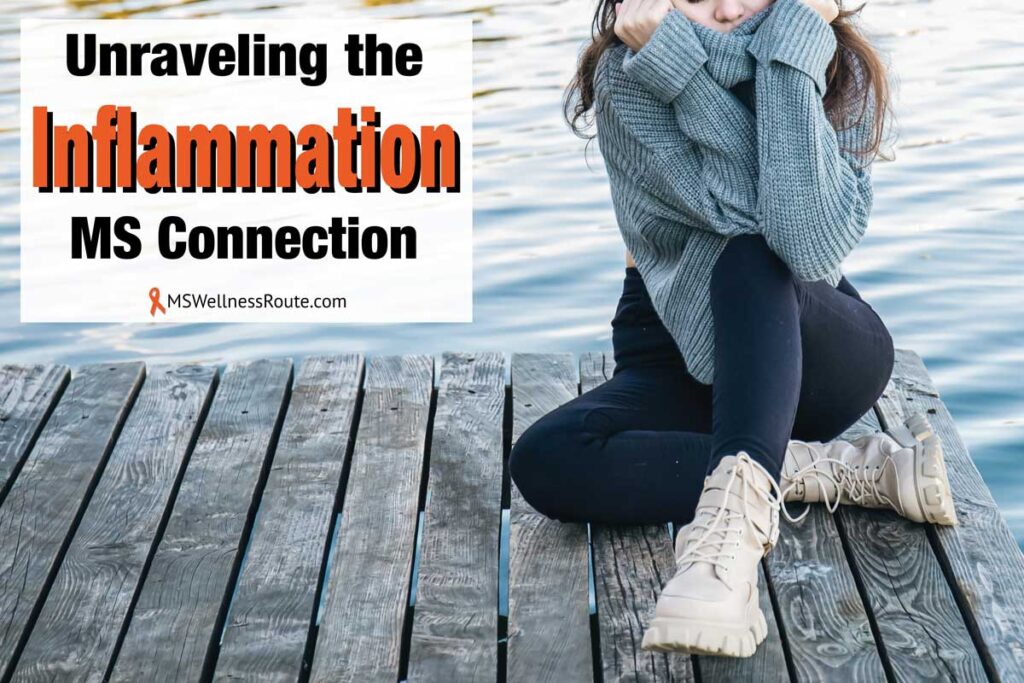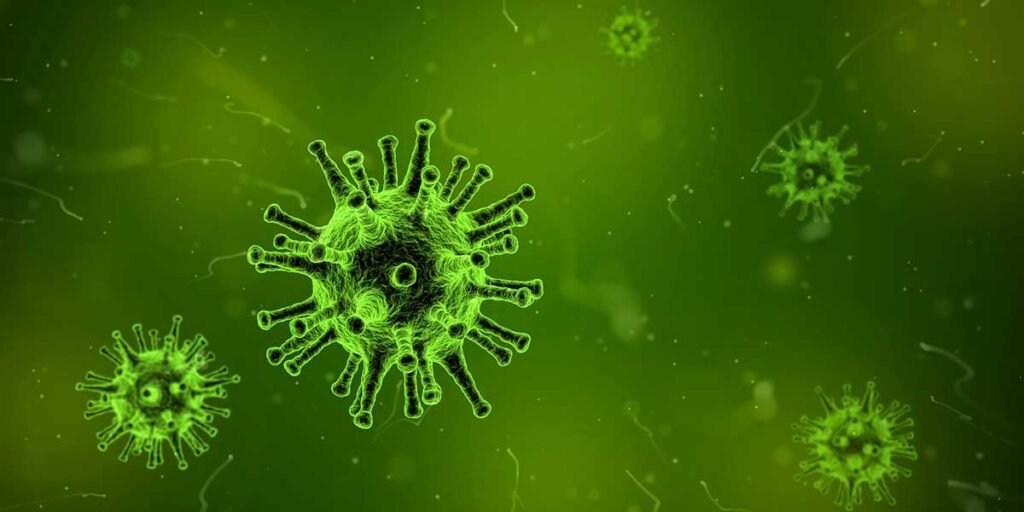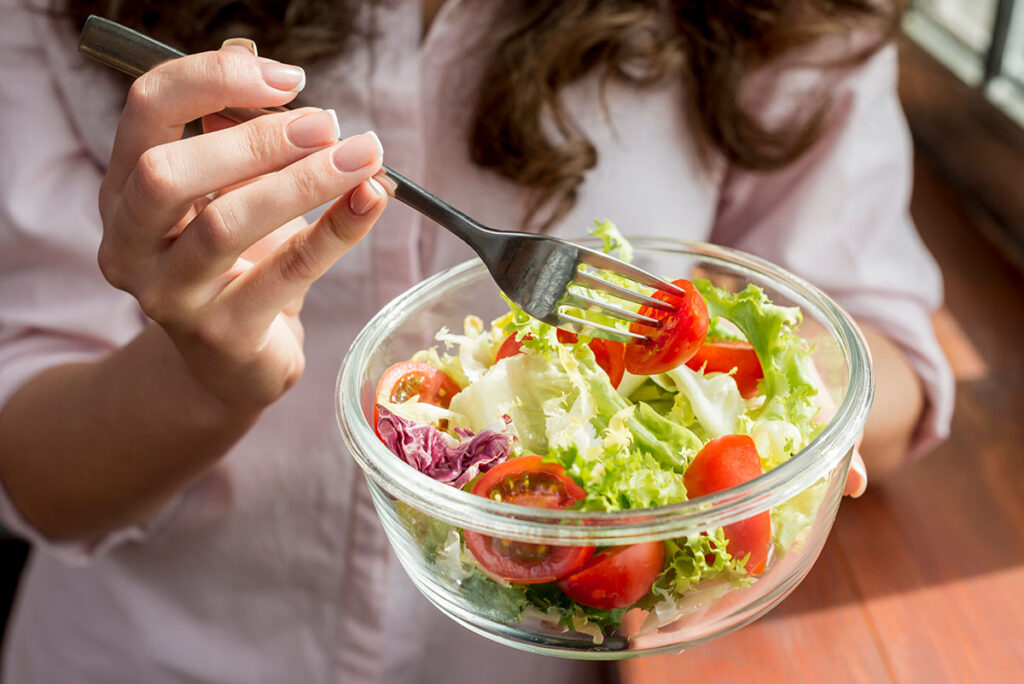Last Updated on September 6, 2024 by Cathy

The cause of multiple sclerosis (MS) is due to chronic inflammation. Your immune system isn’t confused and attacking itself. Your immune system is attacking a pathogen that’s living inside your body.
Pathogens are microorganisms, such as:
- Bacteria
- Fungi
- Parasites
- Viruses
These organisms invade and multiply, causing infections and illnesses. They also can cause diseases in their hosts such as MS. Pathogens have evolved different strategies to survive and thrive within their hosts. They produce toxins, evade the immune system, and exploit host resources. Pathogens spread through direct contact with infected individuals.
Ways pathogens spread:
- Bodily fluids such as saliva, blood transfusion, or sexual contact
- Consumption of contaminated food or water
- Inhalation of airborne particles
- Through infected insects like mosquitoes or ticks
When a pathogen enters the body, the immune system responds to eliminate it. However, some pathogens such as Epstein-Barr virus (EBV) are able to hide (EBVhides in B cells).
Not all microorganisms are pathogens. Many microbes, such as the beneficial bacteria in our gut, play important roles in our health.
Epstein-Barr Virus

EBV is one of the most common human viruses, it is a pathogen. It is a member of the herpesvirus family and is one of the most common human viruses worldwide. It’s known for causing infectious mononucleosis, also called mono or glandular fever.
EBV spreads through direct saliva contact, like kissing an infected person. Inside the body, the virus infects B lymphocytes and establishes lifelong latency. In some cases, the virus can reactivate, leading to recurrent symptoms or complications.
A study released in 2022 stated that EBV is the main cause of MS. In the 20-year study, out of 801 people with MS, only one lacked EBV. They calculated people with EBV were 32 times more likely to develop MS.
To Learn More About The Study Read:
However, 95% of all adults have EBV but only a small percentage have MS. This proves something else is involved.
Possible triggers to MS:
- Diet (poor diet)
- Infections (bacterial overgrowth, parasites, viruses, and yeast overgrowth)
- Environmental Toxins (heavy metals, mold, pesticides, etc.)
- Chronic Stress (especially emotional stress)
- Hormones (adrenaline, cortisol, insulin, vitamin D – yes, it’s a hormone)
How to Stop Pathogens

Pathogens inside your body feed on available nutrients and resources. There are many pathogens that can make you sick including mold and parasites (mold does not cause MS but it is a trigger). The specific requirements to remove them vary depending on the type of pathogen.
Pathogens that may be living in your body:
- Bacteria. Bacterial pathogens can obtain nutrients by breaking down and utilizing various bodily substances. They feed on nutrients in bodily fluids and tissues. For instance, some bacteria utilize glucose as a source of energy.
- Parasites. Parasitic pathogens feed on diverse resources based on location and life stages. For example, intestinal parasites may feed on nutrients from ingested food.
- Viruses. Viruses rely on host cells for their replication and metabolism. They hijack the cellular machinery of their host cells to replicate themselves.
NOTE: Studies show, increasing fruit intake reduced fasting blood glucose concentration. It’s recommended that patients with diabetes eat more fruits. Don’t be afraid to eat fruit.
Chronic Inflammation

Image by Drazen Zigic on Freepik
Nerves connect to the brain and run throughout the body. Breaking these connections causes neurological symptoms. Having MS means your entire body is inflamed. This includes brain inflammation, gut inflammation, and liver inflammation.
If a doctor were to test you for inflammation the results would only show the level of inflammation you have. It does not show you where the inflammation is coming from. A C-reactive protein (CRP) test lets you know how much inflammation is in your body. I get my blood work at Walk-In Lab.
Recommend test results for a CRP blood test:
- Optimal = 0.80 mg/L or lower
- Normal – Low = 1 mg or lower
- Moderate = 1-3 mg
- High = 3 or higher
Foods That Lower Inflammation

Image by Freepik
Several foods have anti-inflammatory properties. Here are some examples:
- Berries: Berries are rich in antioxidants called anthocyanins. These compounds have anti-inflammatory effects and help reduce inflammation in the body.
- Leafy green vegetables. Spinach, kale, and Swiss chard are nutrient-rich vegetables with vitamins, minerals, and antioxidants. They are rich in fiber and linked to lower levels of specific inflammatory markers.
- Turmeric and ginger. Turmeric contains a compound called curcumin, which has potent anti-inflammatory properties. Ginger also has anti-inflammatory effects. You can add both spices to meals or consume them as teas or in smoothies.
- Wild blueberries. Blueberries support brain health. Wild blueberries have two times more antioxidants than cultivated blueberries. They are rich in antioxidants, including anthocyanins, which give them their vibrant color. Anthocyanins possess anti-inflammatory properties and help reduce inflammation in the body. Plus, wild blueberries are a great source of vitamins, minerals, and fiber.
Several herbs have been traditionally used for their potential anti-inflammatory properties including:
- Cinnamon
- Basil
- Garlic
- Ginger
- Rosemary
- Turmeric
Supportive Foods & Supplements
Removing chronic inflammation isn’t easy so the more anti-inflammatory foods you eat the better. There are also several supplements that help lower inflammation and remove pathogens such as EBV. Remember, the main goal is to remove chronic inflammation so your body and heal.
- Berries
- Broccoli
- Citrus fruits
- Curcumin (turmeric)
- Garlic
- Green leafy vegetables
- Herbs including cinnamon, oregano, rosemary, and thyme
- Kiwi
- Licorice root
Living a Healthy Lifestyle

Image by tirachardz on Freepik
Living a healthy lifestyle is crucial for reducing inflammation and promoting overall well-being. Eat a balanced diet rich in fruits, vegetables, lean proteins, and healthy fats. It will provide you with essential nutrients and antioxidants that combat inflammation.
Engaging in regular physical activity helps to regulate the body’s inflammatory response. It builds strength, improves circulation, keeps you mobile, and it releases feel-good hormones. My favorite exercise is an online gym for MS. The owner also has MS so he knows from experience which exercises are best to overcome MS symptoms. Check it out here: OptimalBody Personal Fitness.
Managing stress through practices like mindfulness, meditation, and adequate sleep is vital. If you can’t get your stress under control, it will hold you back.
Inflammation and MS Connection
Inflammation plays a significant role in the development and progression of MS. The main cause of MS is EBV along with other cofactors such as heavy metals. You will need to look at your history and determine what your possible trigger was. For many stress plays a huge role, it also causes flares.
Eating fruits, leafy greens, herbs, and vegetables will help your body heal. Exercise, a good night’s sleep, reduced stress, and the belief you will heal is also important. Embrace these choices to reduce inflammation and promote healing.

The Ultimate Guide to Surviving & Thriving with MS
Unlock the power of a healthy lifestyle with this exclusive ebook! Discover practical strategies and expert advice on managing MS naturally through nutritious eating and mindful living. This comprehensive guide is packed with wellness tips, and lifestyle recommendations tailored specifically for you. Take control of your health and embark on a transformative journey toward a balanced and vibrant life. Get your hands on this invaluable resource and start thriving today!
Want to remember this health tip? Pin it to your Pinterest board!

Image by pvproductions on Freepik
Resources:
https://pubmed.ncbi.nlm.nih.gov/37214237/#:~:text=Results: Nineteen randomized controlled trials,CI -0.51 to 0.17).
Unraveling the Inflammation and MS Connection





